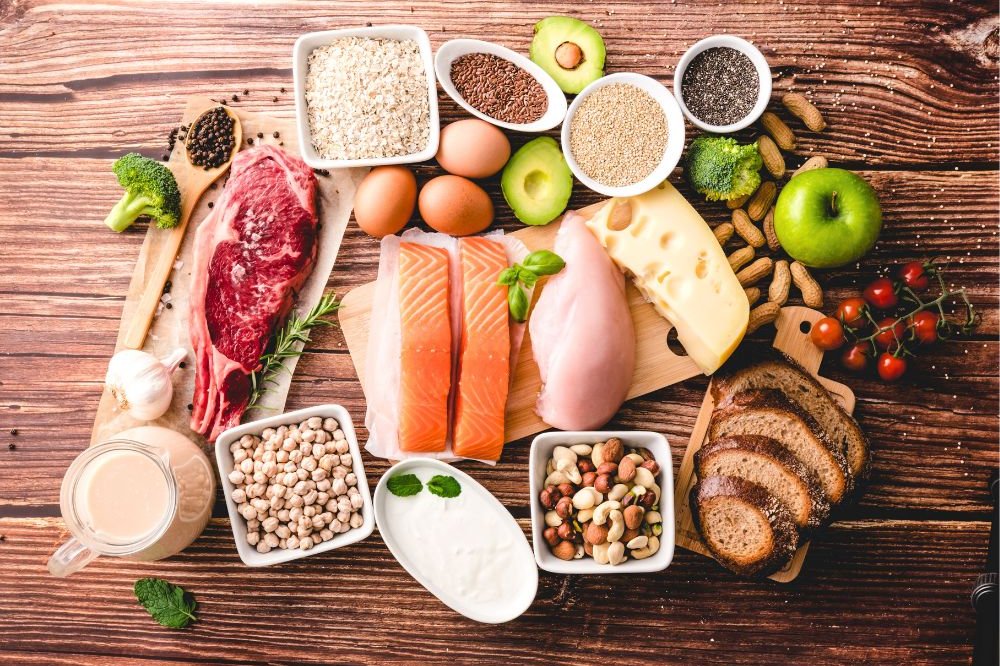When it comes to building muscle, nutrition plays a crucial role, and two macronutrients often at the forefront of this discussion are carbohydrates and protein. While protein is widely recognized as essential for muscle repair and growth, the role of carbohydrates is equally important but often misunderstood. So, are carbohydrates more important than protein for building muscle? Let’s delve into the functions of both macronutrients and how they contribute to muscle-building efforts.
The Role of Protein in Muscle Building
Key Functions
- Muscle Repair and Growth: Protein provides the building blocks (amino acids) necessary for repairing and building muscle tissues after exercise. This process, known as muscle protein synthesis, is stimulated by consuming protein post-workout.
- Preventing Muscle Breakdown: Adequate protein intake helps prevent muscle catabolism (breakdown), which can occur during intense training or when you’re in a calorie deficit.
Recommended Intake
For those engaged in strength training or bodybuilding, a common recommendation is to consume between 1.6 to 2.2 grams of protein per kilogram of body weight per day. This ensures that your body has sufficient amino acids available for muscle repair and growth.
The Role of Carbohydrates in Muscle Building
Key Functions
- Primary Energy Source: Carbohydrates are the body’s main source of energy, especially during high-intensity workouts. Consuming enough carbs ensures that your body has the fuel it needs to perform optimally.
- Glycogen Stores: Carbs are stored as glycogen in the muscles and liver. When you train, your body taps into these glycogen stores for energy. Depleted glycogen can lead to fatigue and decreased performance, which can hinder your muscle-building efforts.
- Insulin Response: Carbohydrates trigger the release of insulin, a hormone that plays a vital role in transporting nutrients, including amino acids, into muscle cells. This process is critical for recovery and muscle growth.
Recommended Intake
Carb needs can vary depending on activity level. For athletes and bodybuilders, recommendations typically range from 3 to 7 grams of carbohydrates per kilogram of body weight, depending on training intensity and duration.
Carbohydrates vs. Protein: Which is More Important?
Balanced Approach
While protein is crucial for muscle repair and growth, carbohydrates are equally essential for fueling workouts and ensuring that protein can effectively support muscle-building efforts. Here are a few key points to consider:
- Energy vs. Recovery: Carbohydrates provide the energy needed for intense workouts, while protein is vital for recovery. Both macronutrients work synergistically; without enough carbs, you may not perform at your best, leading to less effective training and, consequently, less muscle growth.
- Timing Matters: Consuming a combination of carbohydrates and protein post-workout can optimize recovery. This is often referred to as the “anabolic window,” where your muscles are primed to absorb nutrients. A meal or snack containing both macronutrients can help replenish glycogen stores and provide the necessary amino acids for repair.
- Individual Needs: The importance of each macronutrient can vary based on individual goals, activity levels, and dietary preferences. For instance, someone focusing on endurance training may prioritize carbohydrates more than someone primarily focused on strength training.
Practical Recommendations
- Incorporate Both: Aim to include a balance of carbohydrates and protein in your meals and snacks. Great sources of protein include lean meats, fish, eggs, dairy, legumes, and plant-based proteins. For carbohydrates, focus on whole grains, fruits, vegetables, and legumes.
- Pre- and Post-Workout Nutrition: Prioritize carbs before workouts to maximize training performance. After training, consume a meal or snack that combines protein and carbs to support recovery.
- Listen to Your Body: Be mindful to how your body responds to different macronutrient ratios. Adjust your intake based on your energy levels, workout performance, and muscle-building goals.
Conclusion
Both carbohydrates and protein play vital roles in building muscle, and neither should be neglected. Carbohydrates provide the energy needed for effective workouts, while protein supports muscle repair and growth. A balanced approach that includes adequate amounts of both macronutrients, tailored to your individual needs, will yield the best results for muscle building. Remember, successful muscle gain is not just about one macronutrient; it’s about fueling your body holistically to achieve your fitness goals.

